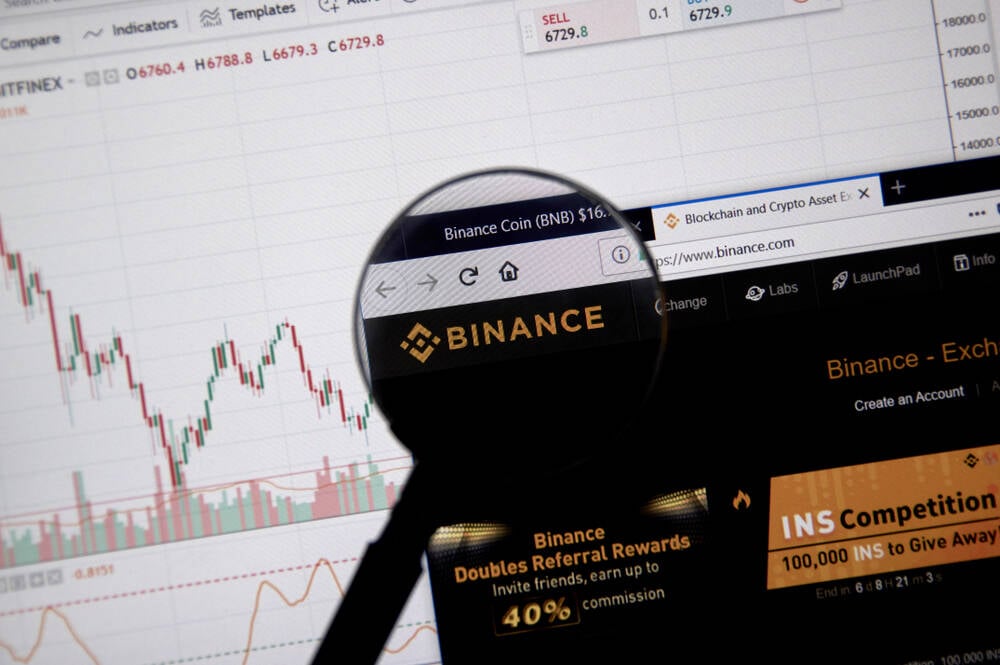Cry-pto: Feds Bury Bitcoin Exchange Giant Binance In 13-count Fraud Lawsuit

America's Securities and Exchange Commission has brought a legal hammer down on Binance and its cofounder Changpeng Zhao, putting the world's largest cryptocurrency exchange in even hotter water than it already was.
The SEC leveled 13 charges against Binance, Zhao and several of the company's subsidiaries, most having to do with offering unregistered assets for sale and failing to register to do financial business in the US.
The Bitcoin-swapping biz was also charged with making materially false and misleading statements to investors, and fraud for allowing certain high-value US customers to access its non-US exchange, and also for misleading investors about the existence and adequacy of safeguards.
"Through thirteen charges, we allege that Zhao and Binance entities engaged in an extensive web of deception, conflicts of interest, lack of disclosure, and calculated evasion of the law," said SEC chairman Gary Gensler.
The tangled webs of Cirith Binance
Binance.com was barred from doing business in the US in 2019, at which point it created Binance.us as a subsidiary that was, ostensibly, independent of the international Binance operation. Customers in the United States could therefore use the .us outfit.
But that independence didn't actually exist, the SEC alleges - in fact, it says Zhao and the larger Binance company controlled Binance.us the entire time it existed. The company reportedly had protections in place to prevent US customers from accessing the international version of Binance, but SEC officials allege the company subverted its own controls "to secretly allow high-value US customers to continue trading on the Binance.com platform."
Binance and Zhao stood up a pair of companies called BAM Management and BAM Trading in 2019, the same year Binance.us was created, to serve as the administrative side of that US operation. However, BAM apparently misled investors about trading controls and protections on the platform, which the SEC said simply didn't exist. It was also still controlled by Binance and Zhao, which was against US rules.
The SEC claimed the company was well aware that it knew it was breaking laws, with Binance's chief compliance officer messaging a colleague saying "we are operating as a fking unlicensed securities exchange in the USA bro."
All the while, Binance was commingling investor cash and sending it to a Zhao-owned company called Sigma Chain, which "engaged in manipulative trading that artificially inflated the platform's trading volume," the SEC said, (sound familiar?) Binance also concealed the fact that it was commingling billions of additional investor assets and sending it to another Zhao-owned company known as Merit Peak Limited.
Many of the allegations in the SEC's suit echo the charges leveled against Binance and Zhao by the US Commodity Futures Trading Commission, which in March filed a civil enforcement action against Binance.
- Tough luck, Brits: Binance suspends UK deposits and withdrawals
- Binance robbed of $600 million in crypto-tokens
- Fahrenheit to take over Celsius
- Crypto craziness craps out – and about time too
The CFTC, in its case, alleged that Binance's compliance program was ineffective, and that the company had "instructed its employees and customers to circumvent compliance controls in order to maximize corporate profits."
"Binance did not require its customers to provide any identity-verifying information before trading on the platform … and failed to implement basic compliance procedures designed to prevent and detect terrorist financing and money laundering," the CFTC claimed, adding that the crypto exchange also helped US customers with lots of cash to throw around gain access to the international version of its platform - just as the SEC alleged.
Binance hits back
Binance issued a statement shortly after news of the SEC lawsuit broke, in which it accused the watchdog of "refus[ing] to productively engage with us," which it called "another example of the commission's misguided and conscious refusal to provide much-needed clarity and guidance to the digital asset industry."
The biz asserted that any allegations of user assets being at risk "are simply wrong," and said it was only being targeted because of its size and global name recognition.
Binance also said it would continue to cooperate with US regulators and policymakers "because that is the right thing to do," while later in the same paragraph threatening to play hardball because it's not a US-based company.
"Because Binance is not a US exchange, the SEC's actions are limited in reach," the exchange said, adding that "we are prepared to fight it to the full extent of the law."
Nothing in Binance's statement directly addresses the SEC's allegations. We reached out to Binance and while it did respond, nothing in its response directly answered our questions, either. ®
From Chip War To Cloud War: The Next Frontier In Global Tech Competition
The global chip war, characterized by intense competition among nations and corporations for supremacy in semiconductor ... Read more
The High Stakes Of Tech Regulation: Security Risks And Market Dynamics
The influence of tech giants in the global economy continues to grow, raising crucial questions about how to balance sec... Read more
The Tyranny Of Instagram Interiors: Why It's Time To Break Free From Algorithm-Driven Aesthetics
Instagram has become a dominant force in shaping interior design trends, offering a seemingly endless stream of inspirat... Read more
The Data Crunch In AI: Strategies For Sustainability
Exploring solutions to the imminent exhaustion of internet data for AI training.As the artificial intelligence (AI) indu... Read more
Google Abandons Four-Year Effort To Remove Cookies From Chrome Browser
After four years of dedicated effort, Google has decided to abandon its plan to remove third-party cookies from its Chro... Read more
LinkedIn Embraces AI And Gamification To Drive User Engagement And Revenue
In an effort to tackle slowing revenue growth and enhance user engagement, LinkedIn is turning to artificial intelligenc... Read more

